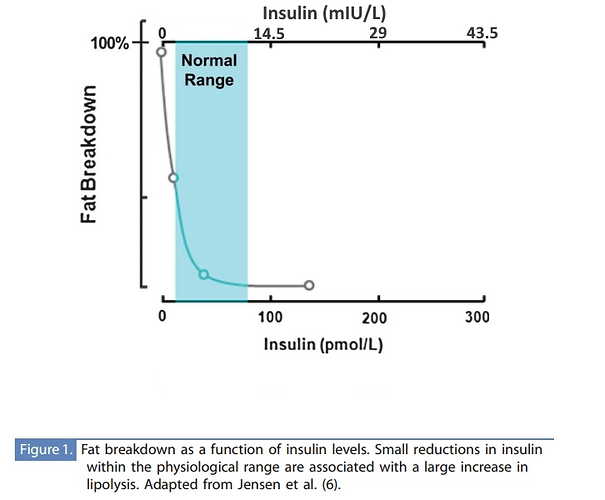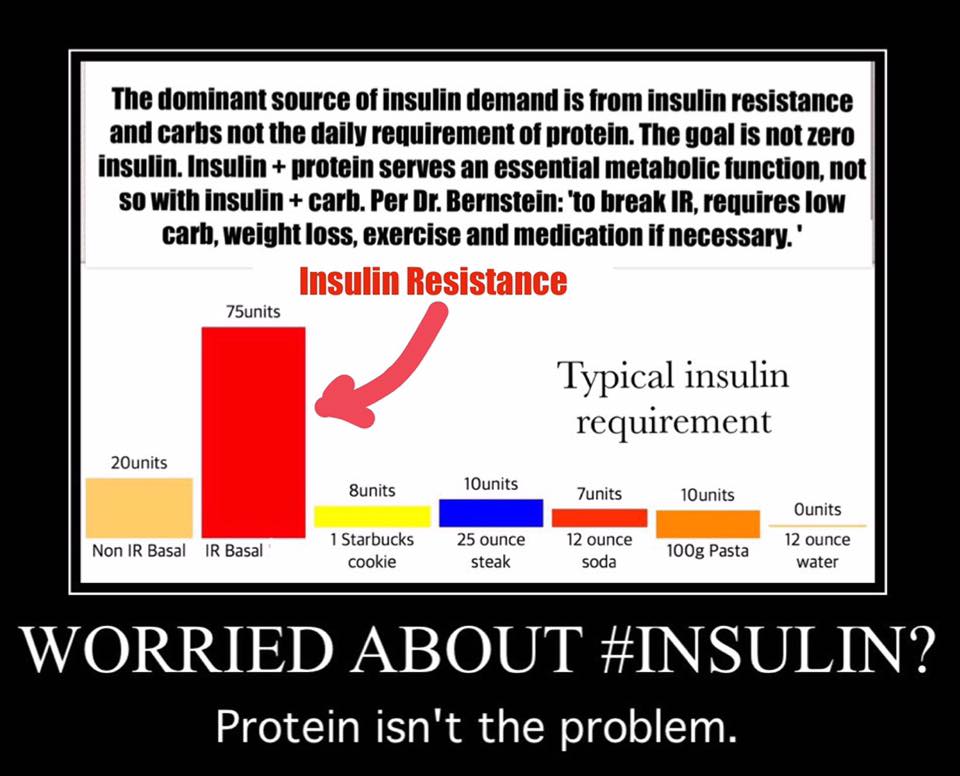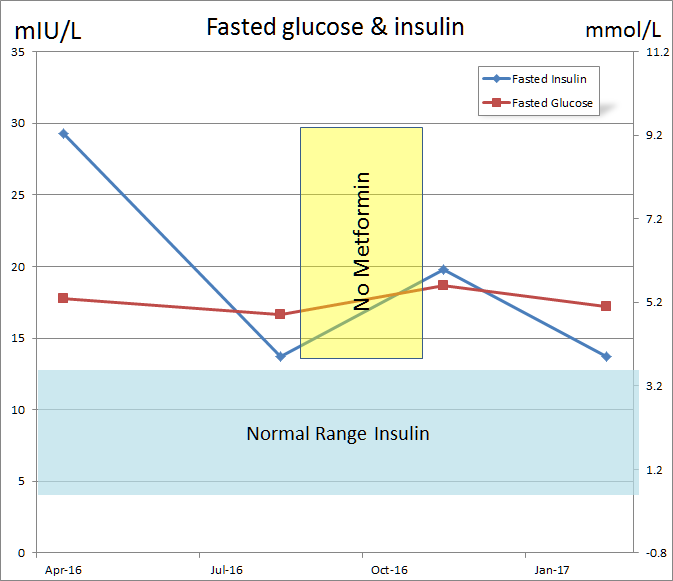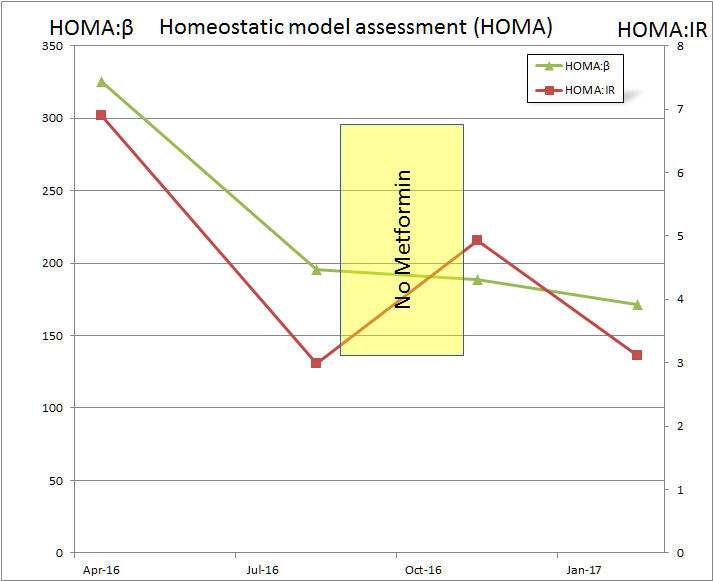That calculator also assumes you can use all the body fat you have, and gives you a number of calories that that body fat can release every day. If for any reason your body fat can’t release any energy then that would additionally restrict the energy it can contribute to your total daily energy expenditure (TDEE).
For example if you have more than about 13 mIU/L of Insulin at any point then body fat is not contributing any energy.
So what makes insulin go up?
- eating carbs
- eating protein (but only 50% as much as carbs)
- making glucose to keep your brain alive (which you kind of have to do)
- stretching your stomach
But what makes it REALLY go up is being insulin resistant and doing any of the above
That chart is a popular meme on Facebook trying to encourage people to eat more protein, but it also explains succinctly why people who are insulin resistant have similar access to stored energy as people who are lean - namely they have access to very little energy from body fat.
It also nicely refutes Ted Naiman’s hypothesis that obese people are always protected from Rabbit starvation on a PSMF that lean people would be at risk of.
Obese people with low basal insulin? Then yes, I would agree that body fat protects against rabbit starvation.
However people with insulin resistance are overwhelmingly in the majority among the obese population. So for the majority of people who are obese, for those who are insulin resistant, a protein sparing modified fast would be just so much metabolic jackass.
So the question for someone who is insulin resistant should be - how do I lower my basal insulin so I can access body fat?
There is an acute method, extended fasting. If I fast longer than about 36 hours all of a sudden I experience a rush of energy as my insulin finally drops low enough to allow access to body fat - and then it’s party time until I stop the fast, and a few hours after breaking the fast I am back to making no ketones and becoming hungry when I don’t eat sufficient fat to fuel my day. Obviously fasting isn’t a long term strategy but it does provide a metabolic window of being almost normal during which I can do prodigious amounts of fasted exercise.
There is a chronic solution too tho. Time. We become insulin resistant over time exposed to higher levels of insulin. So the longer we can function producing the least insulin we can, the more sensitive we become, and the less we need to produce in response to our basal glucose levels that we MUST have to keep our brains alive. This involves eating as little carbohydrate as you can, and the minimum amount of protein to support your normal lean mass maintenance … AND once a week depleting muscle glycogen to give your body a sink into which to pour insulin.
Here are my results from the past 18 months
That shows my fasted insulin for the past year, now this is year 2-3 into a ketogenic diet in which I have already lost 40 kgs and you can see that last April my insulin when I wasn’t eating anything for 12 hours was 29.3 mIU/l (202 pmol/l). By August 2016 I had almost gotten it down into the range where I would get reasonable access to energy from body fat (that cyan zone of Normal range insulin).
Late in 2016 a doctor told me that I couldn’t claim to have reversed my diabetes because in his opinion my glucose would go back up to 10+ as soon as I went off metformin. So I went off metformin for 3 months to make a point. My glucose stayed pretty stable, but my fasted insulin took a hit.
I regret not having a fasted insulin test from when I was really diabetic and my fasted glucose was over 20 mmol/l (350 mg/dl). That would have been interesting to know.
But since I have a year of fasted insulin and fasted glucose it is worth looking at a year of my insulin resistance and pancreatic beta output
Going off metformin makes me more Insulin resistant, but interestingly my beta output remains consistent. That implies I am under the threshold at which I overload my pancreas, so I am slowly improving it’s insulin (beta) function.





